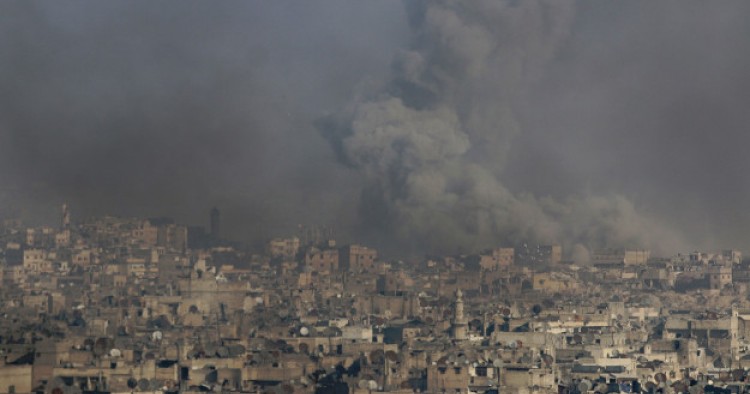Iran’s Defense Minister Brigadier General Hossein Dehghan held a meeting with lieutenant General Ali Abdullah Ayyoub, the chief of the general staff of the Syrian Army, in Tehran earlier today. Dehghan reiterated Tehran’s continued support to Damascus and the two sides condemned the United States, Israel and Saudi Arabia for supporting militant groups fighting the regime of Bashar al-Assad. “By attempting to weaken the anti-terror resistance front, the hegemonic system is trying to guarantee the safety of the Zionist regime [of Israel] and to rebuild and reinforce the morale of the terrorists and justify its illegitimate presence... in the region,” the Iranian media quoted the Iranian defense minister as saying. Ayyoub reportedly said that the Assad regime is indebted to Iran for its unwavering support to Damascus during the six-year conflict. “We believe that the US is collaborating with the Zionist regime and the terrorist groups of Daesh and al-Nusra to effect geopolitical change in the region... and disintegrate Muslim countries,” he added.
Comment: Since the Trump administration’s missile strikes against a Syrian regime air base last month, Iranian leaders have increased their meetings with Syrian and Russian counterparts to coordinate war efforts in Syria. There is a growing concern in Tehran that the strikes may be the beginning of a broader U.S.-led military intervention to support anti-regime rebel groups and topple the Assad government. The alleged Israeli attack targeting an arms depot near Damascus last week and increased U.S. military activities alongside Syrian-Jordanian border have added to Iranian worries. “There are increased activities in southern Syria that indicate preparations for an attack through Jordan and Israel and [with the help of] armed groups,” wrote Tabnak News Agency, an outlet affiliated with former Islamic Revolution Guards Corps (I.R.G.C.) commander Mohsen Rezaei. Unconfirmed reports in the Iranian media also suggest that Tehran has offered to deploy ground troops to Syria to help Damascus against a potential intervention by the U.S.-led coalition in cooperation with anti-regime rebel
Iran and its regional proxies have fought alongside the Assad regime in Syria’s six-year-old civil war, which has killed about a half a million people and forced millions of others to flee to neighboring countries and Europe. Without Iran’s support, the Assad regime was unlikely to survive. Even Russia’s military involvement in Syria came after Iran’s request. During his July 2015 trip to Moscow, it was Iranian Quds Force Commander Qassem Soleimani who convinced the Kremlin to militarily intervene in Syria to save Assad – a development that rapidly changed the balance of power in Assad's favor.
The Middle East Institute (MEI) is an independent, non-partisan, non-for-profit, educational organization. It does not engage in advocacy and its scholars’ opinions are their own. MEI welcomes financial donations, but retains sole editorial control over its work and its publications reflect only the authors’ views. For a listing of MEI donors, please click here.













